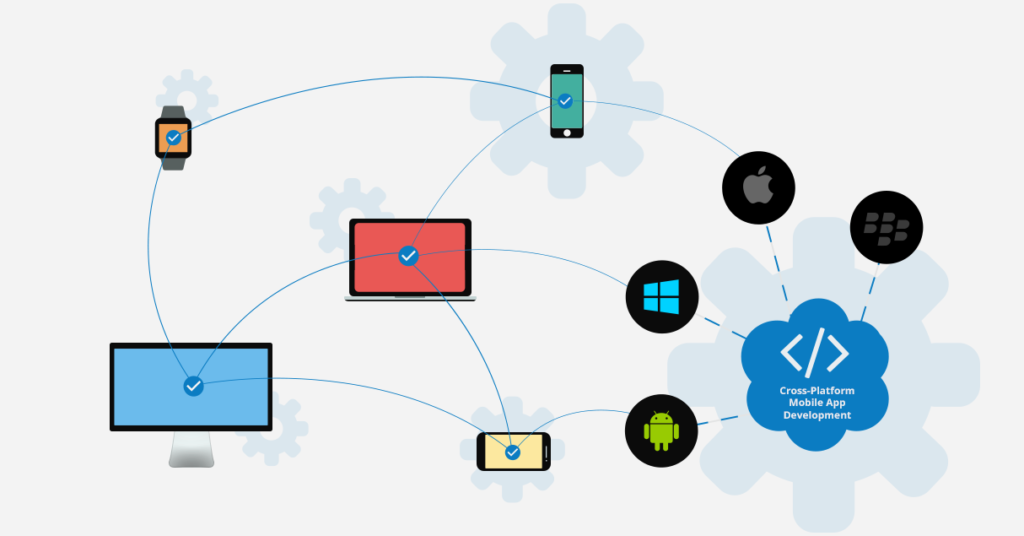In today’s diverse mobile landscape, reaching your target audience often necessitates building apps for various operating systems. While native development, where separate codebases are built for each platform (Android, iOS, etc.), has been the traditional approach, cross-platform app development is rapidly gaining traction.
What is Cross-Platform App Development?
Cross-platform development, as the name suggests, empowers developers to create single codebase that can be deployed across multiple platforms. This eliminates the need to write and maintain separate code for each platform, offering significant advantages in terms of:
- Development Efficiency: By writing code once, developers can significantly reduce development time, cost, and create an app more efficiently.
- Faster Time to Market: Deploying across platforms becomes quicker, allowing you to reach your audience faster.
- Reduced Maintenance: Bug fixes and updates need to be implemented only once in the shared codebase, simplifying maintenance.
How Does it Work?
There are two primary approaches to cross-platform development:
Hybrid App Development:
- Technology Stack: HTML, CSS, and JavaScript (web technologies) are used to build the app’s core functionalities.
- Execution Environment: A web view component within a native app container displays the web-based app content.
- Pros: Offers faster development and broader platform reach.
- Cons: May have limitations in accessing native device features and can feel less “native” compared to native apps.
Native App Development with Frameworks:
- Technology Stack: Frameworks like Flutter or React Native provide a platform-agnostic layer that translates the code into native code for each platform.
- Execution Environment: The app runs directly on the device’s native environment, offering a more “native” experience.
- Pros: Provides a near-native experience with access to most device features compared to hybrid apps.
- Cons: Can have a slightly steeper learning curve for developers familiar with native development.
Choosing the Right Approach:
The best cross-platform approach depends on your specific needs and priorities. Consider factors like:
- App Complexity: Simpler apps might fare well with the hybrid approach, while complex apps might benefit from native-like performance of framework-based solutions.
- Performance Requirements: If the app heavily relies on native device features or needs peak performance, a framework-based approach might be preferable.
- Developer Expertise: Choose a technology stack your development team is comfortable with to ensure smooth development and maintenance.
Benefits and Trade-offs of Cross-Platform Development:
While cross-platform development offers significant benefits, it’s essential to be aware of potential trade-offs:
- Customization: Some degree of customization might be limited compared to native development, as you’re working with a framework or web technologies.
- Performance: While frameworks strive for native-like performance, complex apps might experience slight performance differences compared to true native apps.
The Future of Cross-Platform Development:
As technology advances, cross-platform frameworks are constantly evolving, narrowing the performance gap between them and native apps. This trend is expected to continue, making cross-platform development an increasingly attractive option for businesses looking to reach wider audiences with efficient development practices.
Conclusion:
Cross-platform app development presents a compelling alternative to traditional native development, offering cost, speed, and reach advantages. By understanding the different approaches, their pros and cons, & and your specific needs, you can decide whether cross-platform development is the right fit for your next app project.

